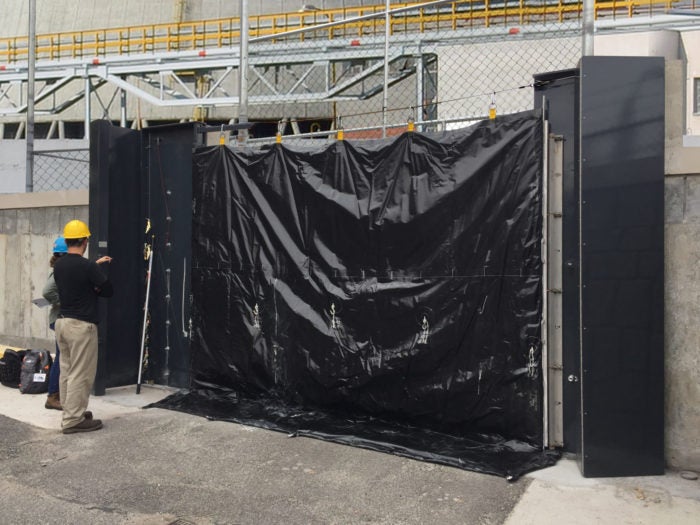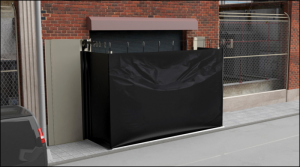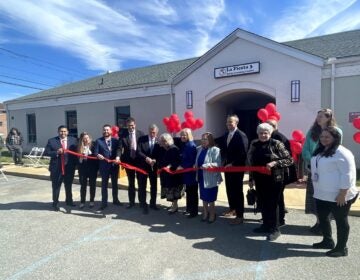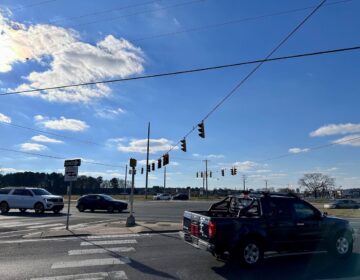Delaware’s ILC Dover branches out into flood-protection technology
With rising sea levels, protecting infrastructure against high water is becoming more of a priority. ILC Dover sees it as a business opportunity.
Listen 1:18
ILC Dover's Flex Wall is designed to hold back up to six feet of water from entering a building or other infrastructure site. (ILC Dover photo)
ILC Dover may be best known for making spacesuits for NASA, but the company has made major strides with a product to protect infrastructure sites that create and transmit power from flooding.
It’s been an unusually rainy year for dozens of cities along the East Coast. And with the specter of rising sea levels in coming years, protecting infrastructure against high water is becoming more of a priority. It’s a concern ILC Dover is hoping to capitalize on with a series of flood-protection products.
After Superstorm Sandy flooded some New York City subway tunnels in 2012, the city started testing the company’s inflatable plugs that can be used to block flood water from gushing into tunnels. The subway plugs were developed in cooperation with the U.S. Department of Homeland Security.

ILC Dover’s latest flood-protection technology is called Flex Wall, a shower curtain-looking fabric that can be installed to protect doorways, storefront windows, vehicular entrances, and other openings.
“Our solution also provides a point of use storage, so the customer can have it right there and deploy it within minutes,” said ILC Dover’s Brad Walters. “It allows the business to stay open longer before they put the protection in place, and open sooner after the storm has occurred.”
Flex Wall recently was certified by Factory Mutual, an insurance company that specializes in loss prevention for large corporations around the world. It’s an “important milestone” for the company’s flood-proofing business.
“We’ve integrated these systems at a major power utility in New York City, for the New York Housing Authority and other customers in New York City,” Walters said. The company now plans to expand sales to other cities in the country that are at risk for flooding.
The technology was developed and is produced at the company’s facility in Frederica, Delaware. “The work is in Delaware, the jobs are in Delaware, and we see this as a growing business over time.”
WHYY is your source for fact-based, in-depth journalism and information. As a nonprofit organization, we rely on financial support from readers like you. Please give today.





